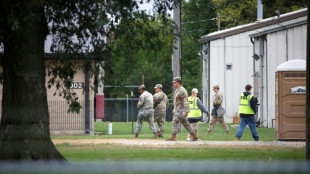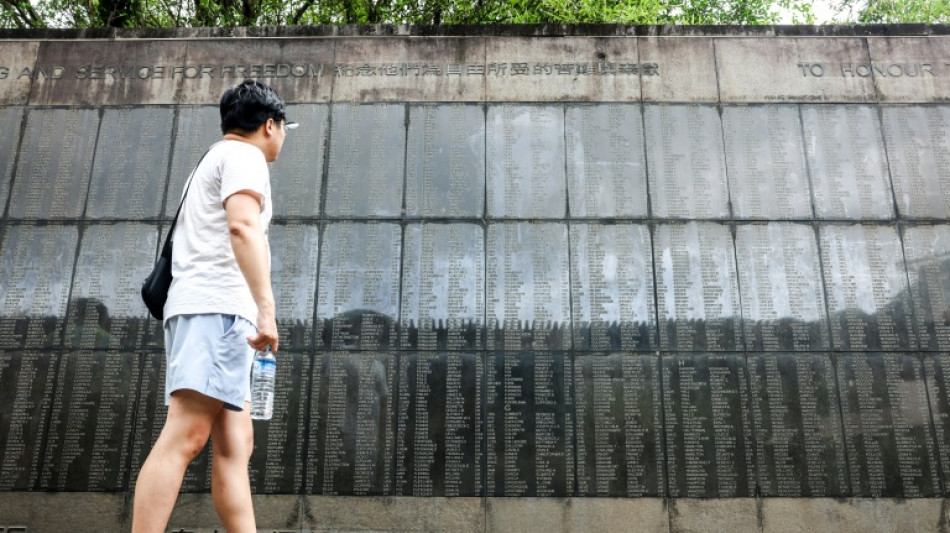
-
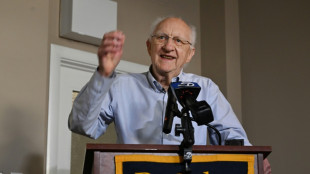 Nobel physics laureate says Trump cuts will 'cripple' US research
Nobel physics laureate says Trump cuts will 'cripple' US research
-
UFC star McGregor suspended 18 months over missed drug tests

-
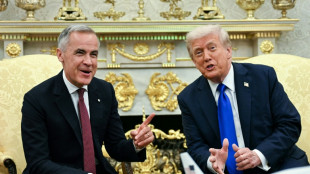 Trump talks up Canada trade deal chances with 'world-class' Carney
Trump talks up Canada trade deal chances with 'world-class' Carney
-
Ecuador president unharmed after apparent gun attack on motorcade
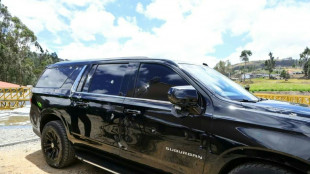
-
 Lyon exact revenge on Arsenal, Barca thrash Bayern in women's Champions League
Lyon exact revenge on Arsenal, Barca thrash Bayern in women's Champions League
-
Trump says 'real chance' to end Gaza war as Israel marks attacks anniversary
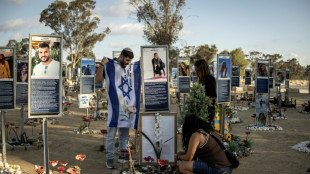
-
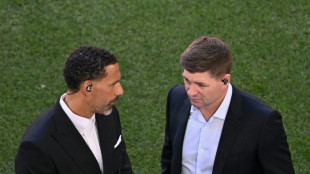 Gerrard brands failed England generation 'egotistical losers'
Gerrard brands failed England generation 'egotistical losers'
-
NFL fines Cowboys owner Jones $250,000 over gesture to fans
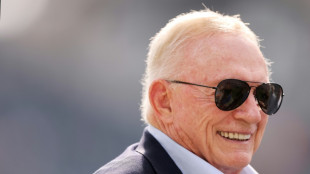
-
 Bengals sign veteran quarterback Flacco after Burrow injury
Bengals sign veteran quarterback Flacco after Burrow injury
-
New prime minister inspires little hope in protest-hit Madagascar
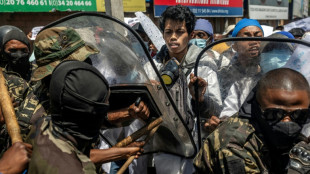
-
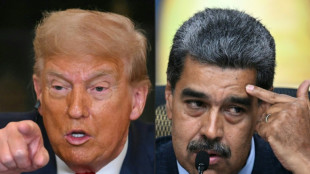 Is Trump planning something big against Venezuela's Maduro?
Is Trump planning something big against Venezuela's Maduro?
-
EU wants to crack down on 'conversion therapy'

-
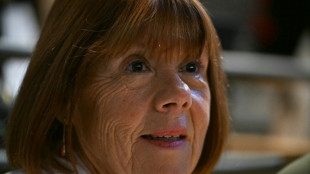 French sex offender Pelicot says man who abused ex-wife knew she was asleep
French sex offender Pelicot says man who abused ex-wife knew she was asleep
-
Trump says 'real chance' to end Gaza war as Israel marks Oct 7 anniversary
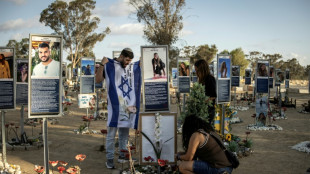
-
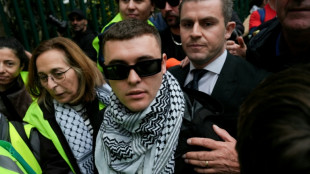 UK prosecutors to appeal dropped 'terrorism' case against Kneecap rapper
UK prosecutors to appeal dropped 'terrorism' case against Kneecap rapper
-
Spain, Inter Miami star Alba retiring at end of season

-
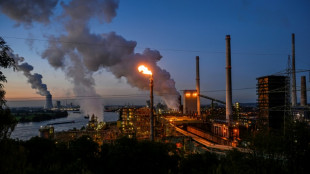 EU targets foreign steel to rescue struggling sector
EU targets foreign steel to rescue struggling sector
-
Trump talks up Canada deal chances with visiting PM
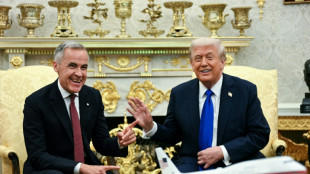
-
 Knight rides her luck as England survive Bangladesh scare
Knight rides her luck as England survive Bangladesh scare
-
Pro-Gaza protests flare in UK on anniversary of Hamas attack
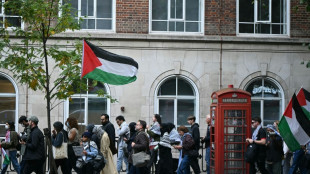
-
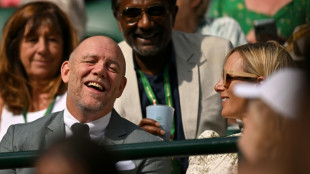 Top rugby unions warn players against joining rebel R360 competition
Top rugby unions warn players against joining rebel R360 competition
-
Outcast Willis 'not overthinking' England absence despite Top 14 clean sweep

-
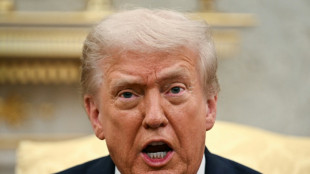 Trump says 'real chance' of Gaza peace deal
Trump says 'real chance' of Gaza peace deal
-
Macron urged to quit to end France political crisis
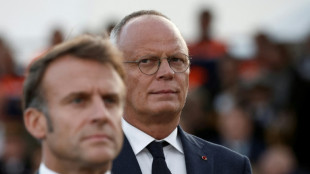
-
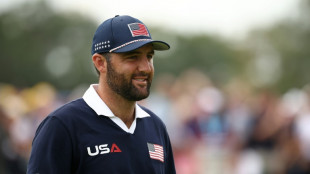 No.1 Scheffler seeks three-peat at World Challenge
No.1 Scheffler seeks three-peat at World Challenge
-
Canadian PM visits Trump in bid to ease tariffs
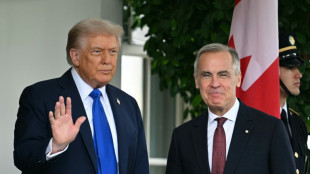
-
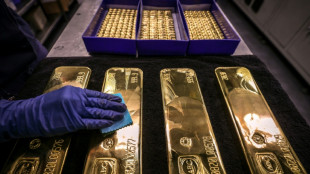 Stocks falter, gold shines as traders weigh political turmoil
Stocks falter, gold shines as traders weigh political turmoil
-
Senators accuse US attorney general of politicizing justice
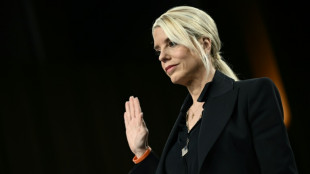
-
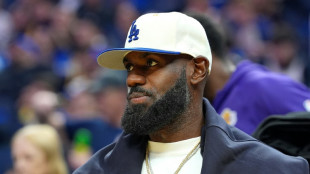 LeBron's 'decision of all decisions' a PR stunt
LeBron's 'decision of all decisions' a PR stunt
-
Observing quantum weirdness in our world: Nobel physics explained

-
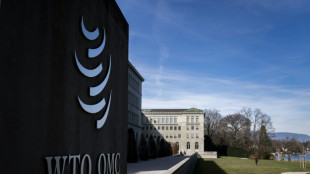 WTO hikes 2025 trade growth outlook but tariffs to bite in 2026
WTO hikes 2025 trade growth outlook but tariffs to bite in 2026
-
US Supreme Court hears challenge to 'conversion therapy' ban for minors
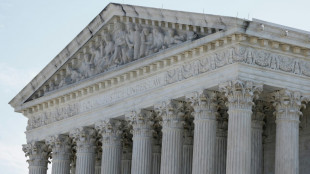
-
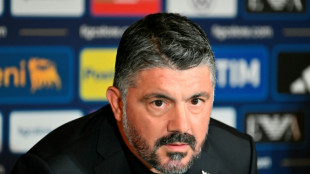 Italy's Gattuso expresses Gaza heartache ahead of World Cup qualifier with Israel
Italy's Gattuso expresses Gaza heartache ahead of World Cup qualifier with Israel
-
EU targets foreign steel to shield struggling sector
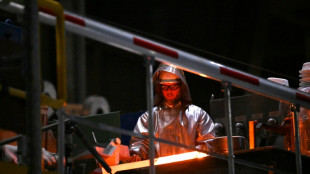
-
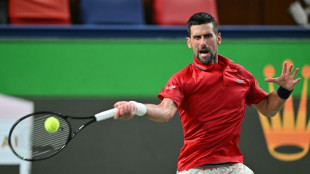 Djokovic vanquishes exhaustion to push through to Shanghai quarterfinals
Djokovic vanquishes exhaustion to push through to Shanghai quarterfinals
-
Stocks, gold rise as investors weigh AI boom, political turmoil
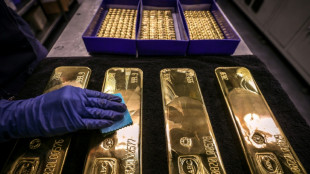
-
 Swiatek coasts through Wuhan debut while heat wilts players
Swiatek coasts through Wuhan debut while heat wilts players
-
Denmark's Rune calls for heat rule at Shanghai Masters
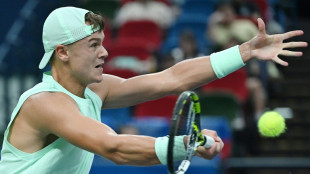
-
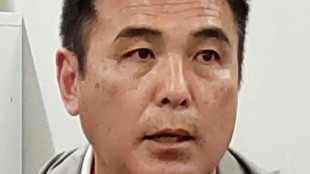 Japanese football official sentenced for viewing child sexual abuse images
Japanese football official sentenced for viewing child sexual abuse images
-
'Veggie burgers' face grilling in EU parliament
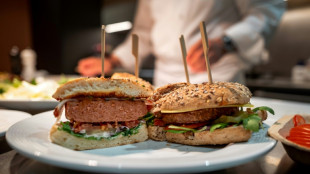
-
 Trio wins physics Nobel for quantum mechanical tunnelling
Trio wins physics Nobel for quantum mechanical tunnelling
-
Two years after Hamas attack, Israelis mourn at Nova massacre site
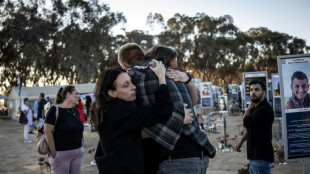
-
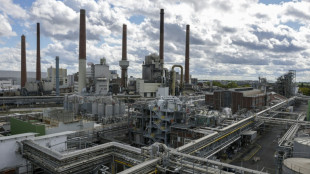 German factory orders drop in new blow to Merz
German factory orders drop in new blow to Merz
-
Man City star Stones considered retiring after injury woes

-
 Kane could extend Bayern stay as interest in Premier League cools
Kane could extend Bayern stay as interest in Premier League cools
-
Renewables overtake coal but growth slows: reports
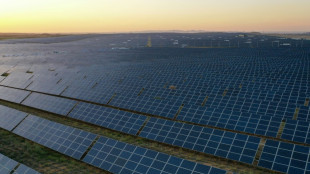
-
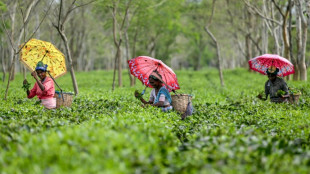 Extreme rains hit India's premier Darjeeling tea estates
Extreme rains hit India's premier Darjeeling tea estates
-
Raducanu retires from opening match in Wuhan heat with dizziness

-
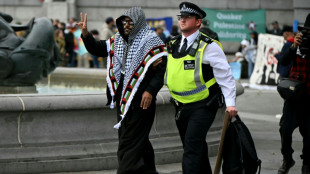 UK's Starmer condemns pro-Palestinian protests on Oct 7 anniversary
UK's Starmer condemns pro-Palestinian protests on Oct 7 anniversary
-
Tokyo stocks hit new record as markets extend global rally
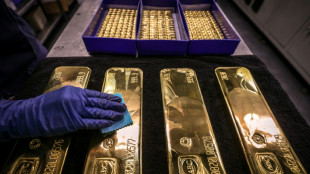

'Nobody else knew': Allied prisoners of war held in Taiwan
In a small urban park in Taiwan, more than 4,000 names are etched into a granite wall -- most of them British and American servicemen held by the Japanese during World War II.
The sombre memorial sits on the site of Kinkaseki, a brutal prisoner of war camp near Taipei and one of more than a dozen run by Japan on the island it ruled from 1895 until its defeat in 1945.
For decades, little was known of the PoW camps, said Michael Hurst, a Canadian amateur military historian in Taipei, who has spent years researching them.
Many survivors had refused to talk about their experiences, while PoWs held elsewhere in Asia had been unaware of "the horrors" in Taiwan, and museums and academics had glossed over them, Hurst told AFP.
After learning of Kinkaseki in 1996, Hurst spearheaded efforts to locate other camps in Taiwan, build memorials for the veterans, and raise public awareness about their bravery and suffering.
Starting in 1942, more than 4,300 Allied servicemen captured on battlefields across Southeast Asia were sent to Taiwan in Japanese "hell ships".
Most of the PoWs were British or American, but Australian, Dutch, Canadian and some New Zealand servicemen were also among them.
By the time the war ended, 430 men had died from malnutrition, disease, overwork and torture.
The harsh conditions of Taiwan's camps were long overshadowed by Japan's notorious "Death Railway" between Myanmar and Thailand, Hurst said.
More than 60,000 Allied PoWs worked as slave labourers on the line, with about 13,000 dying during construction, along with up to 100,000 civilians, mostly forced labour from the region.
Their experiences were later captured in the 1950s war movie "The Bridge on the River Kwai".
But as stories of Kinkaseki slowly emerged, it became "known as one of the worst PoW camps in all of Asia", Hurst said.
- 'Starving and overworked' -
Canadian filmmaker Anne Wheeler's physician father was among the more than 1,100 prisoners of war held in Kinkaseki.
Wheeler said she and her three older brothers "grew up knowing nothing" about their father's ordeal in the camp, where the men were forced to toil in a copper mine.
After her father's death in 1963, Wheeler discovered his diaries recording his experience as a doctor during the war, including Taiwan, and turned them into a documentary.
"A War Story" recounts Ben Wheeler's harrowing journey from Japan-occupied Singapore to Taiwan in 1942.
By the time her father arrived in Kinkaseki, Wheeler said the men there "were already starving and being overworked and were having a lot of mining injuries".
They were also falling ill with "beriberi, malaria, dysentery, and the death count was going up quickly," Wheeler, 78, told AFP in a Zoom interview.
Trained in tropical medicine, the doctor had to be "inventive" with the rudimentary resources at hand to treat his fellow PoWs, who affectionately called him "the man sent from God", she said.
Inflamed appendices and tonsils, for example, had to be removed without anesthesia using a razor blade because "that was all he had", she said.
- 'They kept it to themselves' -
Taiwan was a key staging ground for Japan's operations during the war. Many Taiwanese fought for Japan, while people on the island endured deadly US aerial bombings and food shortages.
Eighty years after Japan's surrender, the former PoWs held in Taiwan are all dead and little physical evidence remains of the camps.
At 77, Hurst is still trying to keep their stories alive through the Taiwan POW Camps Memorial Society and private tours.
His book "Never Forgotten" is based on interviews with more than 500 veterans, diaries kept by PoWs and correspondence.
A gate post and section of wall are all that remain of Kinkaseki, set in a residential neighbourhood of Jinguashi town, surrounded by lush, rolling hills.
On the day AFP visited, a Taiwanese woman taking a tour with Hurst said she had "never" studied this part of World War II history at school.
"It's very important because it's one of Taiwan's stories," the 40-year-old said.
Hurst said he still receives several emails a week from families of PoWs wanting to know what happened to their loved ones in Taiwan.
"For all these years, maybe 50 years, they just kept it to themselves," Hurst said.
"They knew what they'd suffered, and they knew that nobody else knew."
T.Germann--VB

